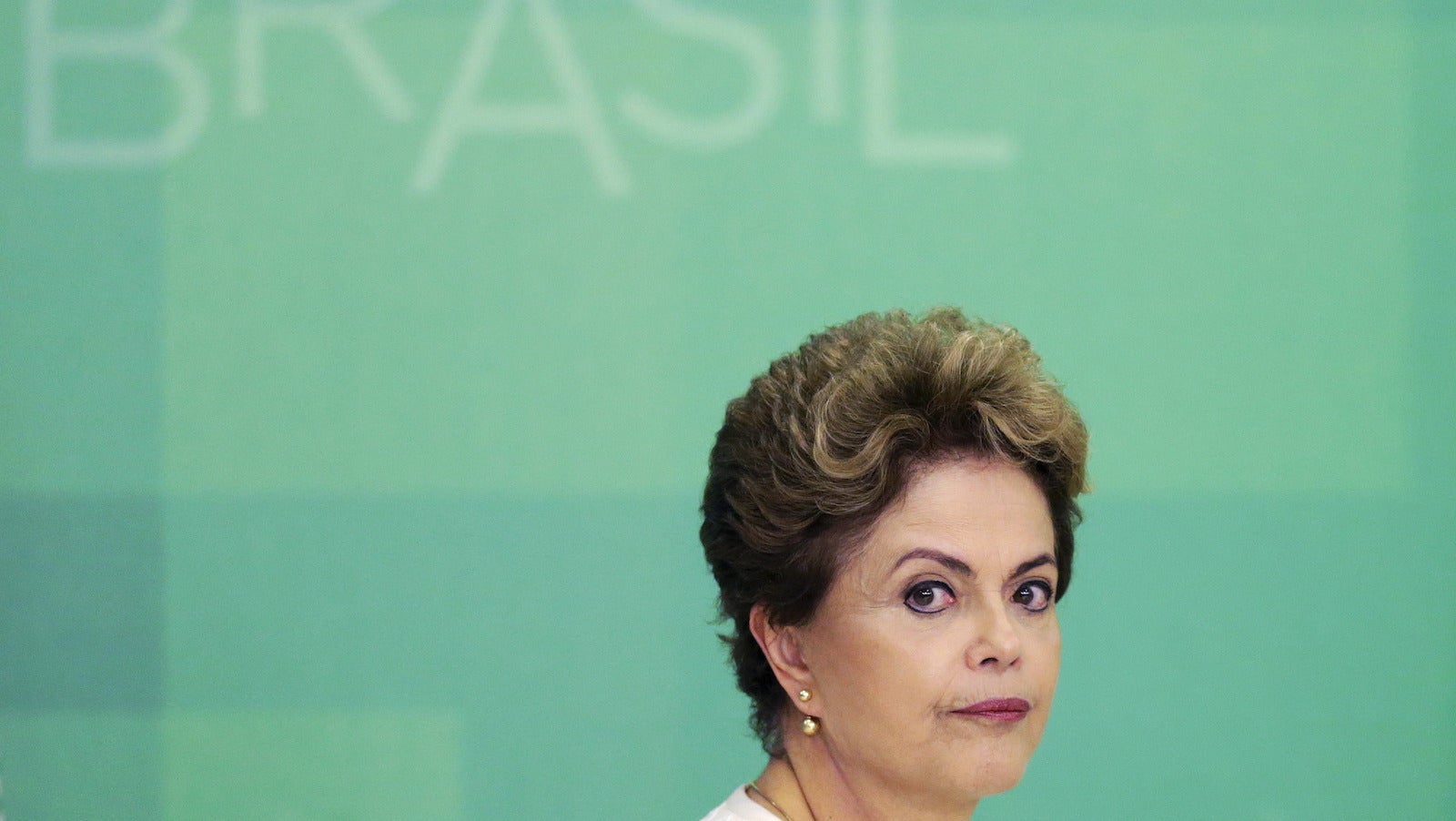Amid scandal and economic recession, Brazil’s president now faces impeachment charges
Just one year into her second term, Brazilian president Dilma Rousseff faces impeachment charges as the South American country suffers from an exhausting corruption scandal and a worsening economic recession.


Just one year into her second term, Brazilian president Dilma Rousseff faces impeachment charges as the South American country suffers from an exhausting corruption scandal and a worsening economic recession.
Lower house speaker of Congress Eduardo Cunha approved a motion to impeach Rousseff on last night (Dec. 2), making this the first impeachment proceeding in Brazil since president Fernando Collor de Mello resigned in 1992. The motion was based on a federal audit court’s ruling that Rousseff used funds from state banks to hide a growing federal budget deficit during her 2014 reelection campaign.
Earlier this year, Cunha had stated that impeachment would be a “backwards step for democracy,” and dismissed several impeachment cases brought against Rousseff, according to the Guardian. His decision to greenlight this case comes just a few months after having been implicated in August in the ongoing Petrobras scandal for allegedly accepting up to $40 million in bribes. Cunha himself is currently facing calls to step down due to unethical conduct, supported by Roussef’s Worker’s Party.
“I’m not doing this for political reasons,” Cunha told reporters.
In the end, the motion may fall flat in Congress—the New York Times points out that the lower house would have to form a committee to review the charges against Rousseff before Congress breaks for a recess later this month. Rousseff may also have enough supporters to stay in office—impeachment proceedings require two-thirds approval from the lower house to pass. But Brazil’s first female president has also suffered from wild unpopularity since she took office: after a tough summer, Rousseff’s popularity rating sunk to single digits in October.